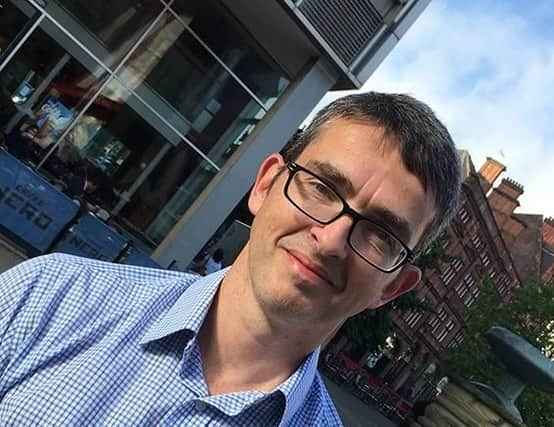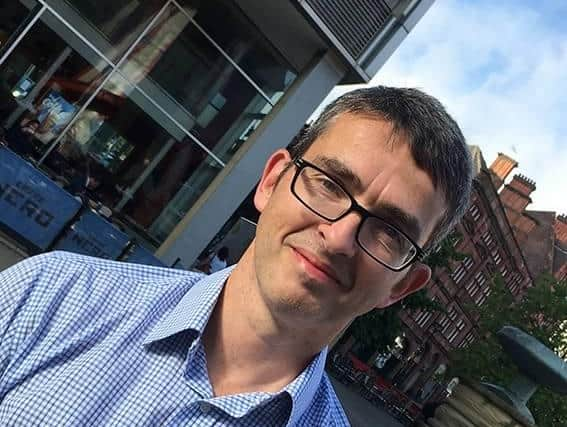'What is public health and why does it matter to all of us here in Sheffield?'


Covid has helped, as we have never been under the spotlight quite as much, but public health is more than Covid. It has always meant different things to different people and that has always been problematic.
The textbook definition is the “science and art of promoting health and preventing disease through the organised efforts of society”.
Advertisement
Hide AdAdvertisement
Hide AdThe science part involves areas like epidemiology, sourcing and use of evidence to support interventions, health economics, evaluation – testing whether something is working. The art part involves ethics – what is the right thing to do, stitching it all together.


Here I give a bit of an overview of what is this thing called “public health” and go beyond Covid.
My team have been consumed by organising and implementing the city’s response to Covid for the last 19 months. This has inevitably led to us changing our priorities. In many cases we simply left behind whole areas of work and now need to pick up the threads.
Whilst we have been focused on Covid, the basic problem remains; in fact Covid has exacerbated it. In short the health of the public isn’t as good as it could be and there are gaps between the best and worst.
Advertisement
Hide AdAdvertisement
Hide AdA man living in Dore can expect to live a longer life than a man living in Darnall, with a seventh of that man’s life in poor health versus a third of the lifespan of the man in Darnall in poor health. Obviously that relates to NHS and social care demand, much illness and early death is attributable to chronic diseases that are almost entirely preventable. It is also an obvious social justice issue. Finally it is an economic issue. There is plenty of evidence that ill health is a significant constraint to economic growth and productivity.
These are not problems that will be fixed by better or more health care services. A wider approach is needed. Pretty much anything that happens in Sheffield contributes to our health, positively or negatively. These are just as urgent as many other pressing problems.
The influence of government policies on health outcomes is huge and not to be underestimated. There is still a gap between best and worst, there is a significant slowing of the rate of improvement for many indicators, most importantly life and healthy life expectancy.
The pandemic has had obvious and very direct impacts on health, there are also well documented indirect impacts on health as a result of behaviour change, shifts in patterns of access to services and the impacts of lockdown, plus the social and economic impacts that will come. We are being very mindful of this as we reframe the role and function of the public health service.
Advertisement
Hide AdAdvertisement
Hide AdAll that said there is a lot of good – the trajectory on many critical indicators is positive. This includes smoking prevalence, physical activity rates, vaccination rates, cardiovascular mortality, cancer mortality, infant mortality. All of these things haven’t happened by magic. They have happened because many people have done the right things over a sustained period.
One of the tricky things to nail is around the governance of “health”, the question of who is responsible and accountable for health, as measured by healthy life expectancy, given all the things that contribute to it.
The fundamental purpose of public health is largely unchanged, namely to create the best conditions for health and narrow the gap. However we frame it, there are six main responsibilities.
1) Leadership for health. This includes advocacy, setting a mission and purpose, taking a whole population perspective and interpreting across many different policy areas.
Advertisement
Hide AdAdvertisement
Hide Ad2) Health improvement. Working with many bodies on a diverse range of social, economic and environmental issues to ensure the city is one which supports wellbeing and health for all. What causes us to be ill and die from obvious factors such as smoking and physical activity to things often termed the ‘determinants of health’ such as poor quality housing.
3) Health protection. Intervention and services to improve air quality, water and food, infectious disease control, protection against environmental health hazards, chemical incidents and emergency response.
4) Health intelligence. Surveillance, monitoring and assessment of health and the determinants of health. What does the population look like, how will it change, what are the main causes of illness and death, what are the causes of those and causes of the causes? What are the implications of all that for how a city responds?
5) Support to NHS and social care. Working with commissioners and providers to ensure that services are accessible, effective, equitable and value for money.
Advertisement
Hide AdAdvertisement
Hide Ad6) Responsibilities of the grant. There is a budget specifically for ‘public health.’ It is used to fund services including health visiting, school nursing, sexual health, drug and alcohol treatment, tobacco control, weight management and a wide range of community wellbeing services.
Public health, and the role of the DPH, isn’t new. It has been around in some form for about 200 years, starting with Medical Officer for Health roles in local government at the end of the Victorian era. Public health’s historic endeavours have led to enormous advances in the control of communicable disease, through immunisation, clean water and sanitation. Some issues are contemporary still and in addition there are new challenges. So the role and territory of responsibility has evolved. We don’t know what form it will take over the next two centuries, but we will continue to act and respond.
Public health is essential to all aspects of health and wellbeing and is crucial to reducing health inequalities and influencing the wider determinants of health.
There is much emphasis on the role of the DPH, but it is a team effort. There are some things that ONLY PH professionals will own and implement, some things we coordinate, lead or provide expert advice on, some where we contribute to the agendas of others. Taking this further most “public health” is done by people who don’t have those two words in their job title. If we take that poor quality housing has a significant bearing on the health of people then that isn’t an issue “public health” experts can solve alone.
Advertisement
Hide AdAdvertisement
Hide AdWe are thinking through exit strategies from Covid. That said, the pandemic isn’t over. We will be in response mode until spring 2022.
In the immediate future we will orient to three areas
Respond to Covid – there IS still a long road yet to travel on Covid
Recover from Covid - dealing with hidden impacts of the pandemic as well as the things that got neglected or stood down and build back healthier and more equal.
Restructure – the NHS is reorganising, the public health national agencies are reorganising, we as a team need to restock and refresh
Advertisement
Hide AdAdvertisement
Hide AdThe three critical things for the next year for me will be refreshing and renewing the core team so that we do get back to normal, refreshing the city’s overall strategy for health – the Health and WellBeing Strategy - and contributing my part to the upcoming NHS reform. In the midst of all of this will be lots of day to day tasks.